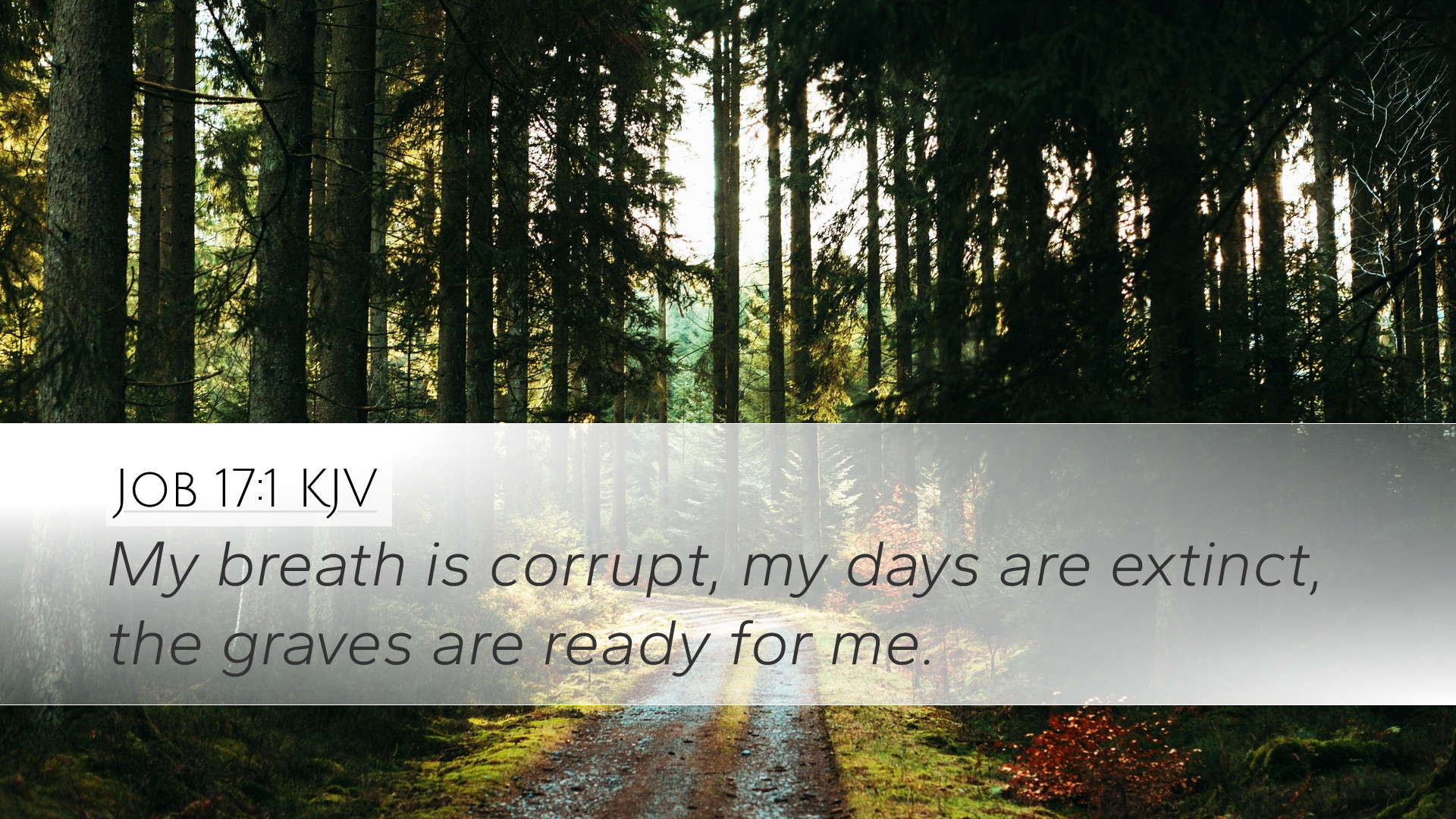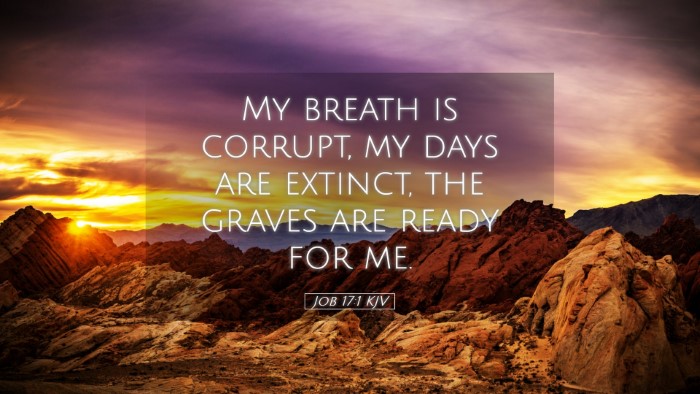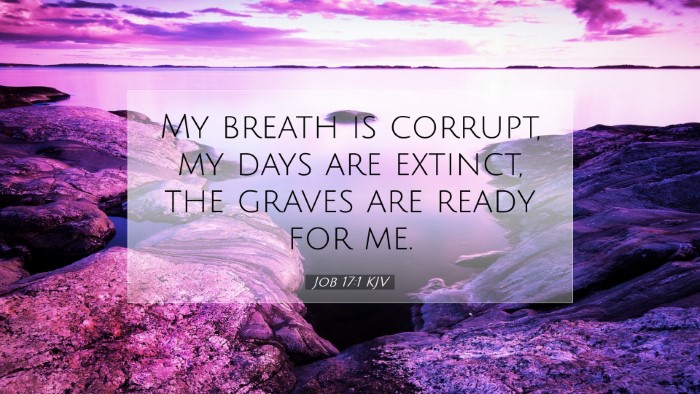Old Testament
Genesis Exodus Leviticus Numbers Deuteronomy Joshua Judges Ruth 1 Samuel 2 Samuel 1 Kings 2 Kings 1 Chronicles 2 Chronicles Ezra Nehemiah Esther Job Psalms Proverbs Ecclesiastes Song of Solomon Isaiah Jeremiah Lamentations Ezekiel Daniel Hosea Joel Amos Obadiah Jonah Micah Nahum Habakkuk Zephaniah Haggai Zechariah MalachiJob 17:1
Job 17:1 KJV
My breath is corrupt, my days are extinct, the graves are ready for me.
Job 17:1 Bible Commentary
Commentary on Job 17:1
Verse: Job 17:1 - "My breath is corrupt, my days are extinct, the graves are ready for me."
Overview
The verse presents Job in deep lamentation, expressing the totality of despair and existential dread he experiences in his suffering. Esteemed commentaries provide a rich tapestry of perspectives on this poignant moment in the Book of Job, significantly contributing to our understanding of his plight.
Insights from Matthew Henry
Human Mortality and Condition: Henry highlights the severity of Job's condition, interpreting "my breath is corrupt" as an acknowledgment of his weakened state and imminent death. He reflects on the frailty of human life, emphasizing that all men, regardless of their status, face mortality.
Plea for Understanding: Job's assertion that "the graves are ready for me" signifies the approach of death, articulating his acute awareness of life’s transient nature. Henry posits that Job's suffering leads him to a closer understanding of his ultimate end, thus advocating a sober reflection on life’s brevity.
Insights from Albert Barnes
State of Despair: Barnes elucidates that Job's declaration illustrates his profound despair. The phrase "my days are extinct" reflects Job's perception of a life in decline, devoid of hope and vibrancy. His words articulate the mental and emotional weight of suffering that bears down on him.
Anticipation of Death: Barnes notes that Job is painfully aware of the grave’s readiness, echoing a sense of resignation about his fate. His focus on death reveals the extent to which his physical affliction overshadows his existence and vision of the future. This brings forth the theme of human vulnerability and the ultimate necessity of reliance on God.
Insights from Adam Clarke
Spirit's Distress: Clarke’s commentary emphasizes the spiritual and emotional corruption that Job feels within himself. He interprets "my breath is corrupt" as symptomatic of Job's deep-seated anguish—illness not only manifests physically but also taints his spirit, revealing the interconnectedness of body and soul in suffering.
Eschatological Perspective: Clarke further investigates the theological implications of Job's despair by considering the perspective on life after death. The mention of graves being ready suggests a Judaic understanding of Sheol, casting a shadow of helplessness while simultaneously pointing to the existential questions of what lies beyond earthly existence.
Theological Reflections
- The Nature of Suffering: The collective insights from these esteemed scholars emphasize that suffering can lead to profound realizations about life, mortality, and one’s relationship with the Divine.
- Hope Amid Despair: While Job’s words echo despair, they also provoke contemplation of hope and resurrection themes in the greater narrative of Scripture, highlighting a tension between present suffering and future redemption.
- Community and Compassion: This verse serves as a critical reminder to the faith community; as Job’s friends gathered around him yet struggled to comfort him, it encourages believers to engage with one another's sufferings with empathy and understanding.
Conclusion
Job 17:1 serves as a striking testament to human vulnerability, the aching cycle of life, and the inevitable approach of death. The varied interpretations from Matthew Henry, Albert Barnes, and Adam Clarke provide depth to Job’s lament, emphasizing theological reflections on the nature of suffering and mortality. Such insights remain timeless, relevant to anyone wrestling with the harsh realities of life, encouraging an exploration of hope amidst despair.


